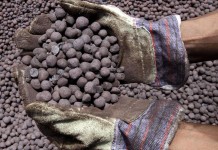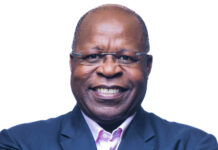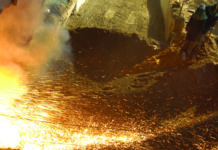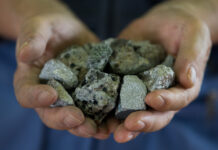
[miningmx.com] – COMMODITIES trader and investment house, Metmar, has thrown into question the constitutionality of proposals by primary
ferrochrome producers to slap a $100/t levy on chrome exports, a step Metmar CEO, David Ellwood termed “an effective ban” on exports of the mineral.
Responding to questions during a presentation on Metmar’s year-end results, first
published on April 26, Ellwood said his company had “huge concerns” regarding the
proposed levy suggested by ferrochrome producers.
Merafe Resources has led the line on proposals for an export levy – described as an
interim measure – on the basis that ‘cheap’ chrome ore exports had provided China’s
ferrochrome industry with an unfair market advantage.
Merafe CEO, Stuart Elliot said government could make a decision on export levies for
chrome exports as soon as the year-end.
Said Ellwood: “We are busy formulating a response to the ferrochrome producers’
argument. There are ongoing discussions.
“I just don’t understand putting a $100 per tonne tax on chrome exports because you
are effectively putting a ban on them”. He said Metmar was “engaging” with the
National Union of Mineworkers on the issue and would not countenance a compromise
levy.
“We are opposed to the levy,” he said. “I would also question the constitutionality of this and why you then isolate chrome ore from iron ore or even coal for that matter,” he added.
Merafe’s argument is that importing chrome ore from South Africa at current prices
has dented the competitiveness of the South African ferrochrome.
During 2011, for instance, global ferrochrome supply was unchanged – but South
Africa’s share fell 9% while China’s increased 13%. The two markets combined
comprise three-quarters of total ferrochrome supply.
Over a longer time frame, South Africa has dropped from about 50% of world market
supply to 42% between 2001 and 2010, whereas China has grown market share to
25% from 5% over the same period.
Ellwood argued, however, that questions should be asked about the South African
ferrochrome industry, especially is competitiveness. He also expressed doubts
regarding the implementation of beneficiation strategies. “How much power [from
Eskom] is available, and at what cost?,” he asked.
Commenting on the closure of Zincor by Exxaro Resources, the zinc producer in which
Metmar had export marketing rights, Ellwood said there was an opportunity to supply
South African consumers of Zincor product with imports.
“We think we can take about 60% to 65% of that market,” he said of the 80,000 to
90,000 tonnes/year Zincor produced. Metmar would market about 10% of Zincor’s
product in exports.











